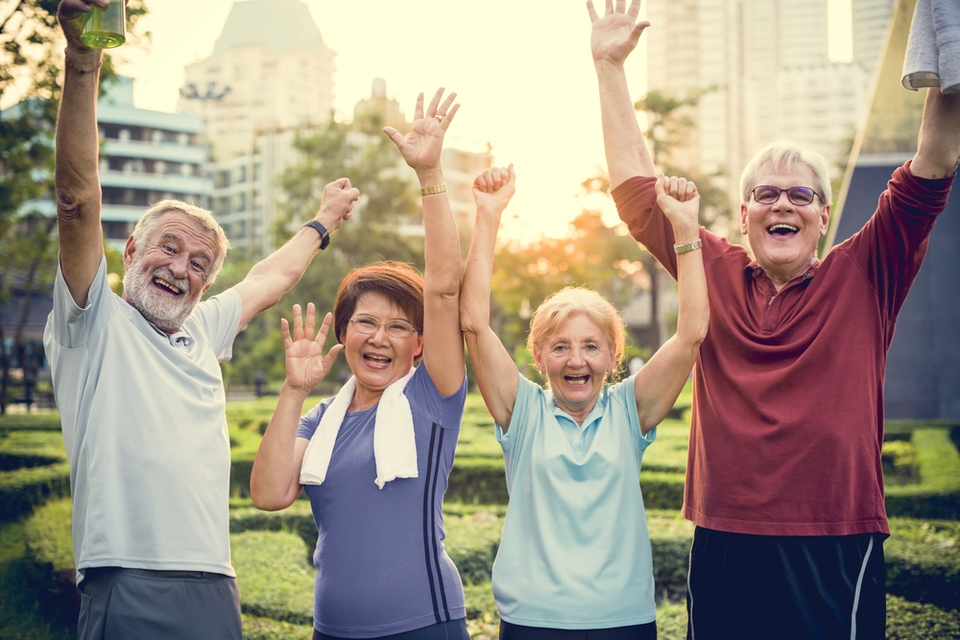
How to Improve Immune System in Elderly: 10 Key Ways

A strong immune system is an important component of good health because it helps you fight off infections and illnesses. As you age, your immune system starts to weaken and becomes less efficient when responding to infections.
Let our care assessment guide you
Our free tool provides options, advice, and next steps based on your unique situation.
The good news is that a healthy lifestyle along with healthy living strategies can improve immune health to better prevent and fight disease. Discover 10 vital immune boosters for seniors and how they can strengthen their immune system.
1. Wash your hands
Washing your hands thoroughly and often can help prevent the spread of disease-causing germs from one person to another. Be sure to lather hands with soap and scrub for at least 20 seconds before rinsing with water. The Centers for Disease Control and Prevention (CDC) recommends handwashing:
- Before, during, and after preparing food
- Before eating
- After using the toilet
- Before and after caring for someone who is ill
- After blowing your nose, coughing, or sneezing
2. Get vaccinated
The single best way to prevent coronavirus infection and the seasonal flu is to get vaccinated. Complications of both viruses, including hospitalization and death, can be especially severe in older adults.
COVID-19 vaccines are now available in all states, with priority given to people 65 and older. Many senior living communities have started vaccinating residents. Information on where to get the vaccine is listed on most state public health websites, and there are many benefits of getting the COVID-19 vaccine.
The senior flu shot is a vaccine developed specifically for adults age 65 and older. Seniors require stronger protection because their immune system weakens with age, so the flu shot helps their system fight the flu virus more effectively than the regular flu shot.

Let our care assessment guide you
Our free tool provides options, advice, and next steps based on your unique situation.
3. Eat well-balanced meals
A healthy diet is essential to a strong immune system. As you age, your nutritional needs and eating habits may change for a variety of reasons. But in addition to a weakened immune system, poor nutrition or malnutrition can also affect heart health, lead to type 2 diabetes and some forms of cancer, and weaken bones and muscles.
A well-balanced diet includes a variety of vegetables, whole fruits, whole grains, fat-free or low-fat dairy, and a variety of protein foods. The American Academy of Nutrition and Dietetics recommends including foods rich in the following nutrients to strengthen immune system health. Here are some key immune boosting foods for seniors:
- Protein, such as seafood, lean meats, poultry, eggs, beans, and peas
- Vitamin A, such as sweet potatoes, carrots, broccoli, and spinach
- Vitamin C, such as citrus foods, strawberries, and certain cereals
- Vitamin E, such as almonds, hazelnuts, and peanut butter
- Zinc, such as lean meats, poultry, milk, whole grain products, and beans
4. Stay active
Regular physical activity can help older adults stay strong, independent, and healthy. But did you know that exercise can help seniors strengthen their immune system?
The U.S. Department of Health and Human Services recommends at least two and a half hours of moderate-intensity exercise each week. Encourage your aging loved ones to find enjoyable activities that match their fitness level. For example, a short 10-minute walk around the block may be a good way to start. Yoga or Tai Chi are also helpful activities to improve flexibility and boost mental and emotional health. Yes2Next, a fitness-inspired YouTube channel for seniors, has many sample workout videos to help older adults strengthen muscles, improve balance, and get active right at home.
5. Reduce stress levels
Managing stress is an important aspect of how seniors can strengthen their immune system. The American Institute of Stress says that chronic stress takes a toll on immune health and hinders your immune system’s ability to fight inflammation and infections. Participating in enjoyable activities that promote relaxation, such as meditation and deep breathing exercises can have positive effects on health. Many mental health apps have become a popular way to reduce stress, anxiety, and more. Some apps are specifically designed to improve sleep, track your mood, and manage depression or PTSD. Be sure to consult a geriatrician or mental health professional if stress is affecting day-to-day life.
6. Connect with others
Social distancing guidelines amid the coronavirus outbreak do not have to keep you from feeling close to the ones you love. Senior isolation may lead to feelings of loneliness and depression, which can compromise immune health. It’s important to find creative ways to stay connected. Call, text, or use video technology, such as FaceTime, Skype, or Zoom to stay in touch while ensuring the safety of you and your loved one.

Talk with a Senior Living Advisor
Our advisors help 300,000 families each year find the right senior care for their loved ones.
7. Get plenty of sleep
Insufficient sleep may hinder your immune system’s ability to respond to infection and inflammation. Additionally, sleep disorders are often linked to many chronic diseases and conditions, such as type 2 diabetes, heart disease, obesity, and depression.
Insomnia is a common sleep disorder among older adults. If lifestyle changes, such as staying physically active, keeping a regular sleep schedule, and limiting caffeine don’t help, your loved one may need to seek medical help.
8. Stay hydrated
Dehydration in seniors often leads to many health issues. Adequate hydration is a key immune booster for seniors. Water helps your body absorb nutrients and minerals, and flush body waste.
Drinking at least eight to nine glasses of fluid a day can help you avoid dehydration. Try incorporating these three tips to help your aging loved one stay hydrated:
- Drink a glass of water before and after every meal and in-between snacks.
- Try mixing it up with some low-fat soup, fat-free or low-fat milk, and caffeine-free tea or coffee.
- Keep a water bottle nearby for sipping throughout the day.
9. Minimize alcohol intake
Excessive alcohol consumption can weaken your immune system, making you more vulnerable to infections. Healthy older adults should limit alcoholic beverages to no more than one drink per day for women and two drinks per day for men, according to CDC.
10. Quit smoking
Smoking harms the immune system, making it more difficult for your body to fight colds, the flu, and other viruses, including the coronavirus. It also increases your risk for many other health problems, including heart disease, respiratory problems, osteoporosis, and type 2 diabetes. Encourage your aging loved one to quit as soon as possible. If you need extra support, talk to your loved one’s doctor or a family member for more help.
Senior living options in all states
The information contained on this page is for informational purposes only and is not intended to constitute medical, legal or financial advice or create a professional relationship between A Place for Mom and the reader. Always seek the advice of your health care provider, attorney or financial advisor with respect to any particular matter, and do not act or refrain from acting on the basis of anything you have read on this site. Links to third-party websites are only for the convenience of the reader; A Place for Mom does not endorse the contents of the third-party sites.
Make the best senior care decision
Make the best senior care decision